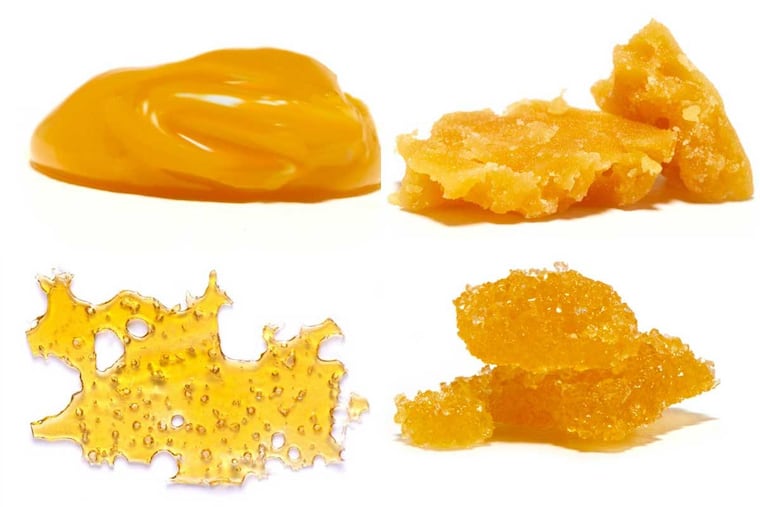Buyers guide to Pennsylvania medical marijuana products
The first Pa. dispensaries, six of which opened this week, aren't selling anything that looks like it was derived from a plant. There are no flower and no shake. There is nothing that you can put in a pipe and smoke - let alone roll-up into a spliff and fire up. Here's what you'll find.

Don't expect to pick up a nickel bag or a couple of joints.
If the last time you caught the scent of cannabis was at a Grateful Dead show in the 1980s, you're likely to be absolutely confounded by the array of products on sale at Pennsylvania's medical marijuana dispensaries.
The first dispensaries, six of which opened this week, aren't selling anything that looks like it was derived from a plant. There are no flower and no shake. There is nothing that you can put in a pipe and smoke — let alone roll into a spliff and fire up.
For the moment, the medical marijuana law in the Keystone State specifically excludes all smokable forms of cannabis. (That could change. This week, the state Medical Marijuana Advisory Board met to discuss allowing sales of flower as a way to increase options and lower costs for patients.)
Available at dispensaries are highly-concentrated oils and resins, all extracted from extraordinarily potent strains of the marijuana plant. Some of the oils are packed into cartridges for use with a vape pen. Some of the extracts are made into lotions and transdermal patches. Others are processed into concentrates that look like congealed ear wax or frozen orange juice. Another variety, called "shatter," looks similar to brittle, hardened corn syrup. All are essentially variants of what the industry considers butane hash oil (BHO).
None of the products can be smoked in the traditional sense of the word.
Chris Visco, co-owner of TerraVida Holistic Health, which opens Saturday in Sellersville, expects vape pens (selling at about $25 each) to dominate sales. Disposable pens will be available in a number of flavors: cappuccino, blueberry, and orange mango.
The different strains for sale — whether Cannabis indica or Cannabis sativa — contain varying ratios of THC to CBD. THC is considered the psychoactive molecule in marijuana, largely responsible for the "high." CBD is widely valued for its alleged therapeutic properties. A pharmacist on staff at each dispensary will guide patients to the strain considered the most suitable for one of the 17 serious qualifying ailments.
Patients at the dispensaries will be allowed to buy a 30-day supply.
"There's no limit on the amount," Visco said. "If they use a gram a day, they'll be able to get 30 grams. Other states limit the amount they can purchase. Our pharmacists will help determine the appropriate quantity. It's important patients get what they need."
The variety of products is expected to explode as more grower-processors bring products to market. Only one of the dozen state-permitted growers, Cresco Yeltrah of Western Pennsylvania, had medicines shipping for sale this week.
We spoke with Visco and Brittany Camac, a pharmacist with Keystone Shops of Devon, about the medical marijuana products available for purchase at Pennsylvania stores. Both Visco and Camac suggest that new users start with vape pens ($25 to $145 each) and recommend that concentrates be left to the "more experienced users." Other products will include tinctures (liquid concentrates suspended in alcohol), pain creams, and pills.
Vape Pen Cartridge
Dispensaries will carry a variety of disposable and reloadable cartridges of various strains and potencies. The viscous materials are blending with terpenes and food-grade flavors. "If you're looking for the benefit of instant pain relief, go with a cartridge," Camac said. Self-contained and discrete, oil-filled cartridges will be available in 500 to 1000 mg sizes. Cost: About $60 for 500 mg.
Concentrates
Concentrates, which can contain well over 80 percent THC, are produced by extracting the molecular compounds from the cannabis plant with a solvent, usually butane or CO². All forms can be loaded into electronic vaporization devices. Several of the concentrates, budder and live sugar, for instance, are processed before drying, while the plant is still "wet."
"Some say that method allows for a more flavorful product," Camac said.
Consistency is the primary difference. Budder is creamy and smooth, where sugar has a shimmery and granular look.
Wax has a more crumbly texture that can be easily manipulated by hand. Shatter is translucent and brittle. Cost: Between $65 to $85 a gram, depending on the strain and strength.
RSO
RSO is a whole-plant extract that is usually taken orally, though sometimes applied to the skin. Sometimes referred to as Rick Simpson Oil (after its creator), the tarlike oil is packaged in 500 mg syringes so that it may be dispensed in tiny drops. Cost: About $65.